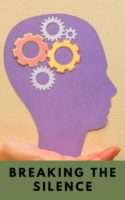The recent shooting of South African rapper AKA has spotlighted the pervasive levels of violence in the country, particularly towards young black men. The shooting dredged up memories of my experience with gun violence a few years ago. I remember feeling scared, confused, and powerless at that moment, and the emotions have stuck with me ever since. When news of AKA’s shooting broke, it again brought all those feelings to the surface. I felt anxious, on edge, and constantly looking over my shoulder, even though I knew I was not directly involved.
It’s important to acknowledge the impact of such trauma on mental health. Even if we’re not physically injured, incidents like this can leave lasting emotional scars. I knew that I needed to seek help to sort through my feelings and emotions, and fortunately, I had the means to do so. But not everyone has access to resources or the financial means to seek support.
Many people in South Africa who experience trauma, violence, or mental health issues do not receive the support they need. This systemic problem needs to be addressed at a societal level. It’s not just a matter of having more mental health resources available but also breaking down the stigma around seeking help and addressing the root causes of violence and trauma in our communities.
Financial stress and crime are major contributors to poor mental health. The lack of money affects people’s mental health, and that lack of money means they won’t be able to access resources to help them be better. Riky Rick was one of many people who struggled with mental health issues. He spoke openly about his depression and anxiety, which he attributed to the pressure of being in the music industry, and unfortunately, it ultimately led to his death by suicide. In the case of Riky, he had the financial resources to seek help, and how he talked about his struggles, I assume he was seeking help; but the unfortunate happened – that’s the complexity of mental health. It is not simply resources and therapy; it’s complicated.
Access to mental health resources is a significant issue in South Africa, especially for those who may not have the financial means to seek help. Earlier this year, my mental health deteriorated to a point that affected my physical health. I was struggling with sleep and getting migraines. I visited two different doctors. I went to one doctor, and I didn’t get the help I thought I needed. I went to another doctor. I was cross-examined, and I was diagnosed with stress-related exhaustion. I was put on medication and encouraged to seek help from a therapist for talk therapy and to a psychiatrist regarding my medication. I was fortunate enough to be able to see a doctor and get the help I needed, but many others are not as fortunate.
It is a problem that affects younger generations, and it’s heartbreaking to think that financial stress alone can lead to poor mental health outcomes, and not having money would probably mean you won’t be able to get help.
Overall, it is essential to break the stigma around mental health in South Africa and encourage people to seek help when needed. We need to support each other, and access to mental health resources should not be a privilege reserved for the few. It is up to us as a society to create a culture where mental health is taken seriously, and everyone can access the help they need. Riky’s last tweet was, “I will return a stronger man. This land is still my home.” Let us make this land, this society, a home Riky Rick and many other young people don’t want to leave by suicide.


